NFT Ticket Benefits Calculator
Results Summary
Enter values and click Calculate to see potential benefits.
Key Features of NFT Tickets
Immutable Ownership
Blockchain-backed proof prevents counterfeiting and ensures authenticity.
Automated Royalties
Smart contracts ensure organizers earn a percentage on every resale.
Fan Engagement
Exclusive content, airdrops, and VIP experiences keep fans connected.
Traditional vs NFT Tickets Comparison
| Feature | Traditional Tickets | NFT Tickets NFT |
|---|---|---|
| Security | Paper can be forged; QR codes can be duplicated. | Blockchain-backed, immutable proof of ownership. |
| Resale royalties | None; original seller gets no cut. | Smart contracts auto-pay 5-15% to organizer. |
| Fan perks | Usually limited to seat type. | Built-in discounts, exclusive content, airdrops. |
| Data insights | Aggregated at point of sale. | Real-time wallet analytics, behavior tracking. |
| Environmental impact | Paper production + travel for distribution. | Depends on blockchain; low-energy chains mitigate impact. |
Key Takeaways
- NFT tickets turn entry passes into tradable digital collectibles with built‑in fan perks.
- Blockchain provides immutable proof of ownership, cutting fraud and scalping.
- Smart contracts automate royalties, airdrops and exclusive experiences.
- Organizers can build lasting fan communities and unlock new revenue streams.
- Technical, environmental and market‑volatility hurdles still need careful planning.
Imagine buying a ticket that not only gets you past the gate but also unlocks a secret Discord channel, drops a limited‑edition digital artwork after the show, and earns the event organizer a cut every time you sell it. That’s the promise of NFT tickets - a fresh way to merge access control, collectibles and community building on a single blockchain‑backed asset.
NFT ticket is a non‑fungible digital token that serves as both event entry and a collectible piece of memorabilia, stored on a blockchain ledger. Unlike paper or QR codes, each NFT ticket carries a unique identifier, a verifiable ownership record and, if programmed, a suite of extra utilities that keep fans engaged long after the lights go out.
Behind the scenes, the technology leans on several core components. The blockchain a decentralized, immutable ledger that records every transaction and ownership change. A smart contract self‑executing code on the blockchain that enforces rules such as resale royalties or perk distribution. Fans hold these tokens in a digital wallet software that stores cryptographic keys and displays owned NFTs., which also makes it easy to receive airdrop a bulk transfer of NFTs or tokens directly to a wallet, often used for bonuses or exclusive content. Even free‑minted badges like POAP Proof‑of‑Attendance Protocol tokens that act as verifiable attendance certificates and unlock community perks. are built on the same principles.
How NFT Tickets Work
When an organizer launches an event, they mint a set of NFT tickets on a chosen blockchain (Ethereum, Polygon, Solana, etc.). Each token contains metadata - the event name, date, seat info and a unique artwork. The minting process writes the token to the ledger, establishing an unchangeable origin record.
Buyers purchase the NFT via a marketplace or a dedicated platform. The transaction moves the token into the buyer’s digital wallet, and the blockchain instantly registers the new owner. Because ownership is public, anyone can verify that a ticket is genuine simply by checking the token’s address on a block explorer.
Smart contracts can embed rules: a 10% royalty on every resale, a whitelist that blocks sales to bots, or a trigger that releases a backstage video once the holder checks in at the venue. These rules execute automatically, without needing a middle‑man.
Fan‑Centric Benefits
Traditional tickets end their life at the gate. NFT tickets keep giving:
- Exclusive content: Access to unreleased songs, highlight reels or behind‑the‑scenes footage.
- Discounts and merch: Embedded coupons for venue food, official merch or future shows.
- VIP experiences: Automatic entry into a virtual meet‑and‑greet or priority seating for the next event.
- Community access: Membership in a private Discord or Telegram group where organizers drop news and polls.
Because the token lives in a wallet, organizers can airdrop bonuses at any time - pre‑show hype drops, in‑venue instant collectibles, or post‑show thank‑you NFTs that double as loyalty points.
Fraud Prevention and Secondary‑Market Control
Counterfeiting becomes practically impossible once a ticket lives on a blockchain. The immutable record guarantees that only the token holder can claim entry. Scalpers lose a powerful tool because smart contracts can enforce:
- Maximum resale price caps.
- Automatic royalty payments back to the promoter.
- Transfer limits per wallet (e.g., one ticket per fan).
These mechanisms turn the secondary market from a loss‑maker into a revenue stream. Organizers see exactly how many tickets change hands, at what price, and can even reward frequent resellers with future discounts.
Real‑World Implementations
The theory is already proving itself on the ground:
- EXIT Festival partnered with NFT‑Tix for a multi‑year rollout, offering fans a collectible ticket that unlocks backstage livestreams.
- European football clubs are selling match‑day NFTs that double as digital trading cards, letting fans own a moment of the game and trade it later.
- POAP badges at major conferences instantly turn attendance into a digital resume item, with alumni groups that receive exclusive webinars.
These pilots show that when fans feel ownership beyond a single night, they stay connected to the brand year after year.
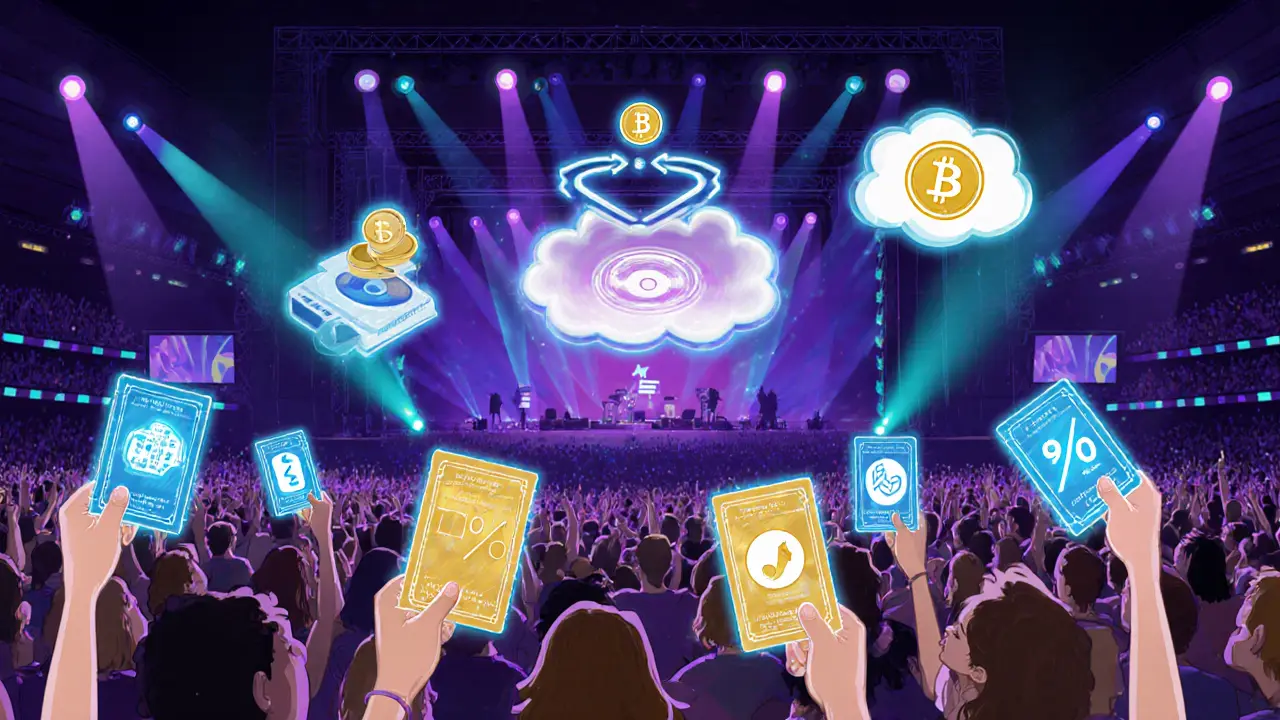
Revenue Opportunities & Community Building
Beyond the face value of the ticket, NFT ticketing adds layers of monetization:
- Royalty streams: 5‑15% of every resale goes back to the organizer.
- Collectible premiums: Limited‑edition artwork can appreciate, encouraging fans to buy early.
- Data insights: Wallet addresses reveal buying patterns, allowing hyper‑targeted marketing.
- Ongoing perks: Airdropped vouchers for future events keep the fan funnel warm.
All of these turn a one‑off ticket purchase into a membership model where the fan feels like a stakeholder.
Implementation Challenges
Adopting NFT tickets isn’t a plug‑and‑play switch. Organizers must tackle:
- Wallet onboarding: Not every fan has a crypto wallet; tutorials and UI‑friendly apps are essential.
- Environmental concerns: Energy‑heavy proof‑of‑work chains face criticism; many choose low‑carbon alternatives like Polygon or Solana.
- Price volatility: If tickets are priced in crypto, rapid market swings can affect affordability.
- Regulatory landscape: Some jurisdictions treat NFTs as securities; legal counsel is advisable.
Addressing these issues early-offering fiat‑on‑ramp services, choosing eco‑friendly blockchains, and being transparent about fees-greatly smooths the fan experience.
Future Outlook
As blockchain scalability improves and mainstream wallets become as easy to use as a credit card, the gap between tech‑savvy early adopters and the average concert‑goer shrinks. Expect to see:
- Dynamic tickets that change artwork based on live performance data.
- Cross‑event loyalty tokens that accumulate points across festivals, sports games and theater.
- AI‑driven personalization that serves custom merch offers directly to the ticket holder’s wallet.
When an event can keep fans engaged before, during and after the show, the value proposition for both organizers and audiences leaps forward.
Comparison: Traditional vs NFT Tickets
| Feature | Traditional | NFT Ticket |
|---|---|---|
| Security | Paper can be forged; QR codes can be duplicated. | Blockchain‑backed, immutable proof of ownership. |
| Resale royalties | None; original seller gets no cut. | Smart contracts auto‑pay 5‑15% to organizer. |
| Fan perks | Usually limited to seat type. | Built‑in discounts, exclusive content, airdrops. |
| Data insights | Aggregated at point of sale. | Real‑time wallet analytics, behavior tracking. |
| Environmental impact | Paper production + travel for distribution. | Depends on blockchain; low‑energy chains mitigate impact. |
Next Steps for Organizers
- Choose a blockchain that balances security, cost and carbon footprint.
- Partner with a reputable NFT ticketing platform (e.g., NFT‑Tix, YellowMint).
- Create compelling artwork and define smart‑contract rules (royalties, transfer limits).
- Develop a wallet‑onboarding flow - include QR‑code login and fiat‑to‑crypto bridges.
- Plan a pre‑event airdrop schedule to build hype.
- Gather post‑event data and send follow‑up NFTs that grant early‑bird access to the next show.
Frequently Asked Questions
Do I need cryptocurrency to buy an NFT ticket?
Most platforms now accept credit‑card payments that are converted to crypto behind the scenes, so you don’t have to own any digital currency yourself.
What happens if I lose access to my digital wallet?
Your wallet’s private key is the only way to recover it. Best practice is to back up the seed phrase in a secure location. Some services offer custodial wallets to simplify recovery.
Can I resell my NFT ticket?
Yes, and the embedded smart contract will automatically send a royalty percentage back to the event organizer on every resale.
Are NFT tickets environmentally friendly?
If you pick a low‑energy blockchain (e.g., Polygon, Solana) the carbon footprint is comparable to, or even lower than, printing and shipping paper tickets.
How do airdrops work for ticket holders?
The organizer’s smart contract pushes a new NFT or token directly to every wallet that holds the event’s ticket at a predefined time. Recipients automatically see the new asset in their wallet app.
- Poplular Tags
- NFT tickets
- fan engagement
- blockchain ticketing
- event NFTs
- digital ticketing






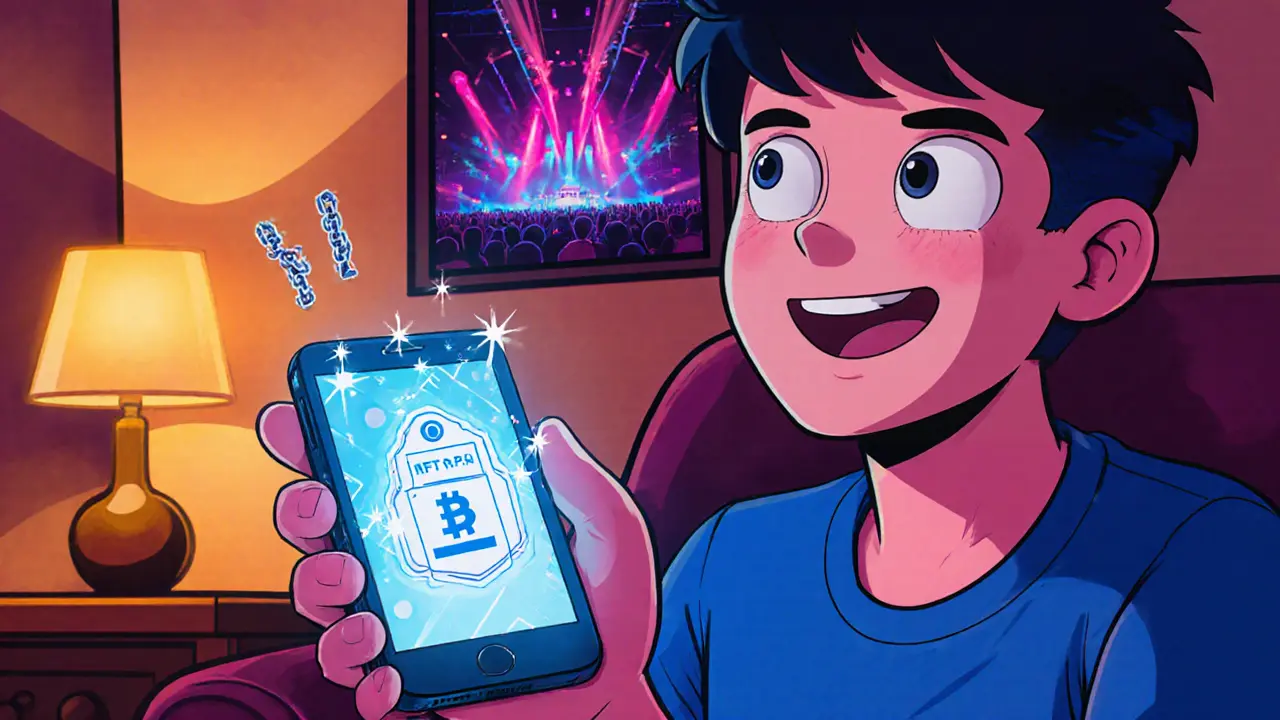
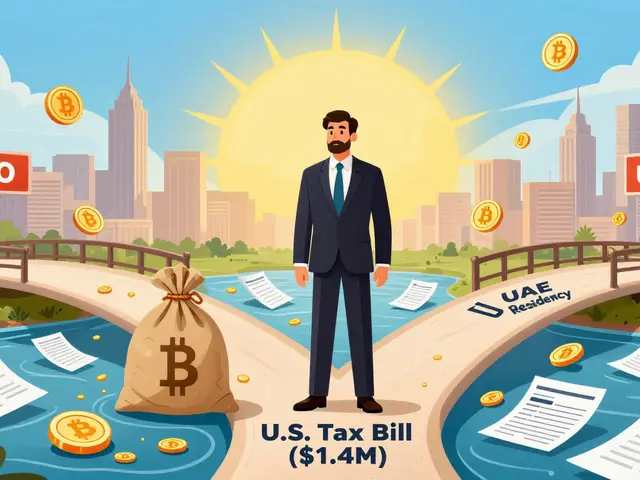
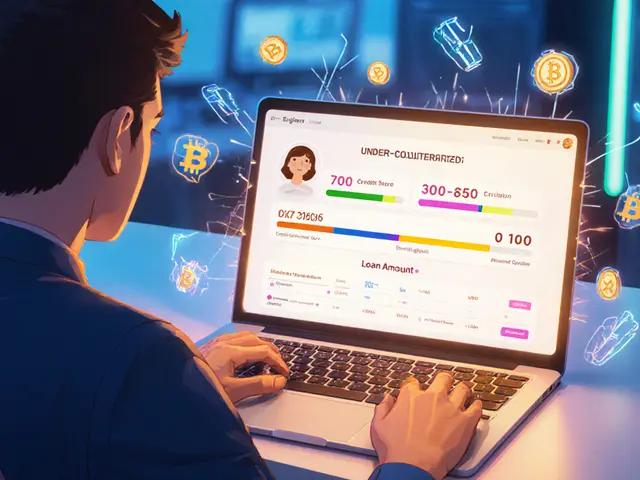
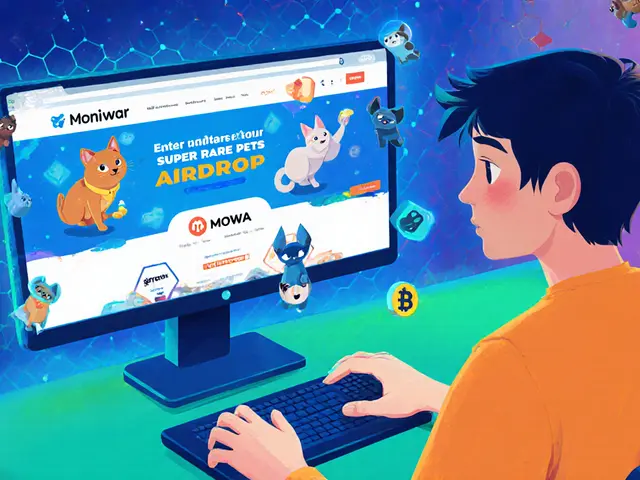
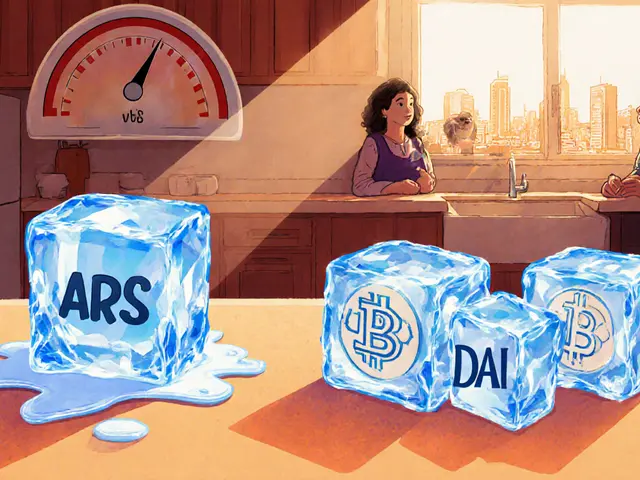
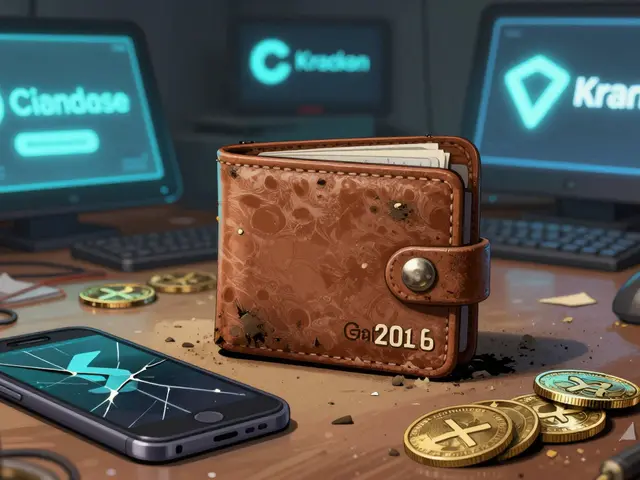
People Comments
NFT tickets are just hype, nothing more.
Your point about hype hits home. Still, the blockchain layer can actually give fans real ownership and open doors to secondary markets that were impossible with paper tickets.
Honestly, the immutable ownership thing is a game‑changer. Fans can prove they own a seat without any shady PDFs, and smart contracts automatically kick the organizer a cut on every resale. It feels like a win‑win: fans get resale royalties, and promoters get data insights in real time. Plus, the airdrop perks can keep the community buzzing long after the concert ends. 🚀
Culture meets tech when tickets become collectibles.
Exactly! Think about a fan who buys a ticket for a tour and later gets exclusive backstage footage just because they own the NFT. That kind of layered experience turns a simple entry pass into a lifelong memorabilia piece. It also lets artists reward early supporters with future drops, creating a virtuous cycle of loyalty. The only downside is making sure the blockchain you pick isn’t a carbon monster.
Look, if you’re not leveraging NFTs to squeeze extra revenue, you’re leaving money on the table. The royalties are not a gimmick; they’re a steady stream that can fund better production. Stop pretending it’s just about “fan perks” when the real motive is cash flow.
Blockchain? Nah, stick to real tickets. All this crypto nonsense just makes things more complicated for ordinary fans. Keep it simple, keep it local.
Allow me to delineate the multifaceted implications of integrating non‑fungible tokens into the ticketing ecosystem. First and foremost, the immutable ledger ensures that each ticket possesses a cryptographic fingerprint, precluding duplication and fraud. Second, the automated royalty mechanisms embedded within smart contracts provide organizers with a predefined percentage of every secondary sale, thereby cultivating an ongoing revenue stream beyond the primary event. Third, fan engagement can be amplified through token‑gated experiences, such as exclusive merchandise drops, backstage access, or personalized digital content. Moreover, the data harvested from wallet interactions enables granular analytics, allowing promoters to tailor marketing strategies with unprecedented precision. Environmental considerations, while contingent upon the consensus algorithm of the chosen blockchain, can be mitigated by opting for proof‑of‑stake networks, which dramatically reduce energy consumption relative to proof‑of‑work systems. Additionally, the secondary market becomes more transparent, as each resale transaction is recorded on-chain, affording both buyers and sellers greater confidence in the authenticity of the ticket. From a legal standpoint, the programmable nature of NFTs can enforce compliance with regional regulations, such as age restrictions or venue capacity limits, directly within the contract code. The psychological impact on fans should not be underestimated; ownership of a verifiable digital asset may engender a stronger emotional bond to the artist or event, fostering brand loyalty. Conversely, barriers to entry-namely the requirement for a digital wallet and a basic understanding of blockchain-must be addressed through user‑friendly interfaces and educational outreach. In summary, NFT tickets present a paradigm shift that intertwines technological innovation with economic incentives, data-driven insights, and enhanced fan experiences, all while demanding conscientious implementation to avoid alienating less tech‑savvy attendees.
That’s a bold claim, but the reality is that many fans in emerging markets lack access to reliable internet and crypto wallets, making NFTs more of a barrier than a benefit.
Pro tip: when you set up NFT tickets, use a low‑gas, proof‑of‑stake chain and provide a simple “one‑click” wallet onboarding flow. It keeps the eco‑footprint down and the user experience smooth.
From a marketing perspective, the novelty factor can boost ticket sales by 10‑15 % in the first few weeks, especially if you tease the exclusive perks in advance.
One might contemplate the philosophical ramifications of assigning digital scarcity to experiences traditionally governed by physical presence; does this not redefine the notion of attendance?
While the concept is intriguing, the implementation often suffers from poor user interfaces, leading to frustration among non‑technical fans; a streamlined UI is essential.
I appreciate the balanced view; it’s crucial to weigh both the opportunities and the accessibility challenges.
Yeah, because we totally needed another way to make tickets feel exclusive. 🙄
Honestly, this whole NFT ticket hype makes me feel like I’m living in a dystopian novel where every experience is tokenized and sold back to us at a premium. The cultural erosion is palpable.
While some may decry the tokenization of cultural events, it is undeniable that a structured blockchain framework provides both accountability and a mechanism for equitable revenue distribution, thereby reinforcing the societal fabric through transparent economic participation.